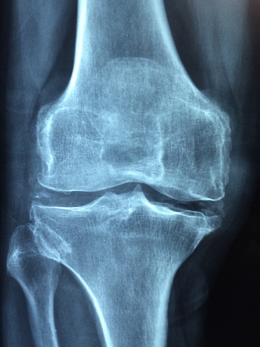What to Watch For and How to Thrive
We all know and have learned that getting older is a privilege, but it has its own challenges—particularly for men aged 50 and above. The reality is that as the body evolves, so does the risk for some health concerns. Although you can’t halt time, knowing these typical issues and taking action ahead of time can make you resilient, active, and feeling great. Let’s dive into the most common health issues which are some of the silent threats for men in this age range and how to address them.
Table of Contents
Heart Health: The Silent Threat

We all know that heart disease is the leading cause of death for men over 50. And the risk increases with age. There are certain conditions like high blood pressure, one of the silent threats and cholesterol, along with lifestyle choices like smoking, inactivity, indulgence can silently harm your heart. Symptoms often don’t appear until the situation becomes serious-such as chest pain or shortness of breath-so prevention is essential and these symptoms are the silent threats.
What to Do
It is important to schedule yearly check-ups for cholesterol levels. It would be advisable to create a table or a chart for daily blood pressure – both morning and evening. Carry an intelligent blood pressure measuring machine in your pocket. (check price on Amazon) Its helpful. Try at least 30 minutes of brisk walking or light strength training for at least 3 to 4 days of the week.
Perhaps cut down or avoid processed foods and concentrate on heart-healthy foods such as fish, fruits n nuts, and leafy greens. Little changes today can definitely bring big rewards in the future.
Prostate Problems: A Common Concern

A Common worry If you’re 50+, you might find you have a problem with your prostate. An enlarged prostate is a common benign prostatic hyperplasia (BPH) which is again one of the serious silent threats, which can make you urinate often or be unable to start urinating. The risk of prostate cancer also goes up with age, impacting around 1 in 8 men.
What to Do
Never miss your yearly checkup. See a urologist. Talk to your doctor/urologist about PSA tests or screenings, especially if there is a family history of prostate problems. To help with BPH symptoms, try cutting back on caffeine and drinking plenty of water. Early detection is your best defense, so be aware of any changes.
Joint Pain and Arthritis: Staying Mobile

As you age, years of wear and tear can accumulate on your joints. Osteoarthritis, which is cartilage breakdown, is a significant contributor (not of the silent threats), but it tends to hit spots such as the knees, hips, or hands. You might feel morning stiffness or soreness after exercise, and that could make you want to just stay still, but that’s not the answer.
What to Do
Don’t delay. Begin with low-impact activities like swimming or yoga to maintain joint flexibility without straining. Exercises like leg lifts or resistance bands can also be used to strengthen the muscles around your joints. If the pain continues, go see a doctor who can prescribe anti-inflammatory medication or physiotherapy. Stay active; it’s crucial for continued mobility.
Testosterone Decline: Energy and Mood Shifts

Testosterone Decline: Energy and Mood Changes Testosterone levels normally drop after age 50, possibly causing fatigue, low sex drive, or mood swings. This decrease again one of the silent threats, sometimes called andropause. Andropause may impact muscle mass and bone density. Although not all men go through this, it’s worth watching for any changes.
What to Do
Do light weight training to increase testosterone levels naturally. Good rest, 7-8 hours nightly keeps you relaxed both mentally and physically. If you are having extreme symptoms such as depression or lack of sex drive, have your doctor talk to you about hormone testing. Lifestyle modifications certainly work, but sometimes medication or therapy will be required.
Weight Gain and Metabolism Slowdown

That extra around your waistline is more than a cosmetic concern; it can be a sign of slowing metabolism with age. This is further aggravated by loss of muscle mass that worsens the ability to burn calories. More weight, one of the silent threats, puts one at risk for diabetes, heart complications or even other health complications. For men aged 50 and above, belly fat can also indicate insulin resistance.
What to Do
Replace sugary beverages with water. Its recommended to fill your meals with vegetables and lean proteins. Discipline your life with strength training at least two times a week to rebuild muscle, which helps burn calories. Even a 10-minute walk after meal can increase your metabolism. Consistency is better than crash diets.
How to Take Charge of Your Health
Keep in mind that you can’t control these health issues. Begin with an annual physical examination to learn key health measures (blood pressure, cholesterol, blood sugar) to ward off the silent threats and common men’s health risk over 50. Establish a habit: 150 minutes of moderate exercise per week, eat whole foods, and sleep 7-8 hours. Do not neglect stress control- practices such as meditation. Regular time in the outdoors will lower cortisol levels as well.
What to do
Proactive Steps – Never ignore symptoms. A persistent ache or unexplained fatigue isn’t just a part of aging; it’s a signal to consult a doctor. Discuss with friends or family for support and motivation. Being over 50 doesn’t mean the end; it’s a new chapter in your life.
At 50 and older, health issues don’t have to control you. Men’s aging health concerns like Heart risk, prostate problems, aching joints, hormonal shifts, and weight gain are all legitimate concerns—but they can be managed. By embracing intelligent habits and being proactive, you can take on these challenges head-on and keep living life your way. What will your next move be to feel stronger?
Disclaimer:
This blog on Silent Threats to Men’s health is for informational purposes only and does not substitute professional medical advice. Always consult a qualified healthcare provider for diagnosis and treatment of any health issues. The content is based on general knowledge and may not apply to individual cases.
FAQ: Frequently Asked Questions
What are the most common health problems men face after 50?
Males above 50 years of age typically suffer from cardiovascular disease, prostate issues, diabetes, osteoporosis, and mental issues like depression or anxiety. Periodic health screening can identify them early.
How can men over 50 maintain heart health?
In order to preserve cardiovascular health, males need to have a well-balanced diet that includes lots of fruits, vegetables, and whole grains, have regular exercise (a minimum of 150 minutes a week), and stay away from cigarette smoking and drinking too much alcohol.
What are the signs of prostate problems?
Prostate problems can be difficulty urinating, nighttime urination, or hematuria. If you experience these symptoms, see a healthcare provider for assessment.
How can men prevent osteoporosis?
Osteoporosis can be prevented in men by eating foods with lots of calcium, taking supplements of vitamin D, and doing weight-bearing exercises such as walking or weight lifting.
What mental health challenges are common for men over 50?
Depression, anxiety, and stress are universal mental health problems. Men should take mental wellness seriously through relaxation methods, social support, and professional intervention where necessary.
Are there specific screenings men over 50 should undergo?
Yes, men must go for blood pressure screenings, cholesterol screening, diabetes screening, prostate health checks, and screening for colon cancer. Check-ups on a regular basis facilitate early detection and management.
How can men improve their overall health and quality of life after 50?
Men can gain a better quality of life if they keep healthy, manage their stress, get enough exercise, and adhere to their physician’s guidance for preventable care.













